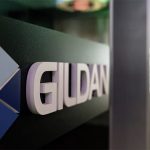According to data compiled by the International Data Corporation, the worldwide wearables market hit a record high in the fourth quarter of 2021 (4Q21) as shipments reached 171 million units, up 10.8 percent from the same quarter last year, according to data compiled by the International Data Corporation (IDC) Worldwide Quarterly Wearable Device Tracker.
New products and continued demand for health and fitness tracking products and hearables helped the market maintain its momentum. Shipments for the full year 2021 totaled 533.6 million units, an increase of 20.0 percent over 2020.
Hearables were again the top category as shipment volume grew 9.6 percent during the quarter and accounted for almost two-thirds of the wearables market. Watches continued to steal share from wristbands offering consumers more features and customization.
Lesser-known categories including glasses (those without displays), rings, connected shoes, and others grew 94.1 percent during the quarter primarily due to products including the Oura Ring and Facebook/Ray-Ban Stories.
“While supply has been a constant battle for many companies during 2021, many of the issues began to subside during the quarter and allowed brands to ship record volumes while broadening their product lines,” said Jitesh Ubrani, research manager, IDC Mobility and Consumer Device Trackers. “However, the supply crunch also forced many companies to think about services, and this is likely going to play a key role in the wearables market moving forward as OEMs can experiment with their business models by subsidizing the hardware purchase through on-going services revenue.”
“Although Apple remained far out front for the year, another telling sign of the market is the long list of vendors coming afterward,” noted Ramon T. Llamas, research director, Mobile Devices and AR/VR at IDC. “Samsung, Huawei and Imagine Marketing all posted market-beating year-over-year growth, as did our collective ‘Others’ group. That shows demand is spreading out to other companies and products, bringing added diversity and price competition to attract and retain more customers. And because there is still strong demand from first-time users, vendors can court them with features similar to Apple’s products but at much lower price points.”
4Q21 Company Highlights
Apple retained the No. 1 position capturing a 34.9 percent share in the quarter. The broad availability of the Series 7 watches, after being delayed from Q3 to Q4 2021 and the launch of the AirPods 3, helped drive Apple’s growth during the quarter. With Xiaomi’s wristbands in decline, the company has been able to grow and secure its position in the space by focusing on watches, which doubled in volume during the quarter, as well as hearables.
Samsung’s Galaxy Watch 4 Series was heavily promoted during the holiday season through discounts and trade-in offers, and the activity paid off as the company managed to gain three percentage points in the smartwatch market during the quarter compared to the holiday season in 2020. However, growth in the hearables category did start to slow as the company’s shipments grew 4.3 percent, notably less than the 9.5 percent growth for the category overall during the quarter.
Huawei’s growth was 35.6 percent during the quarter, and the company gained traction outside China due to aggressive marketing. European-bound shipments represented 29 percent of Huawei’s portfolio during the 2021 holiday season, up from 19.9 percent in the prior year.
Imagine Marketing rounded out the Top 5 to India’s rapid growth of all wearables. The company’s BoAt brand ranked high due to its high-value, low-cost strategy that’s worked well for its hearables and watch business. Average watch prices sell below $50, which is one of the main reasons the wristband market has faced challenges in the recent quarter.












